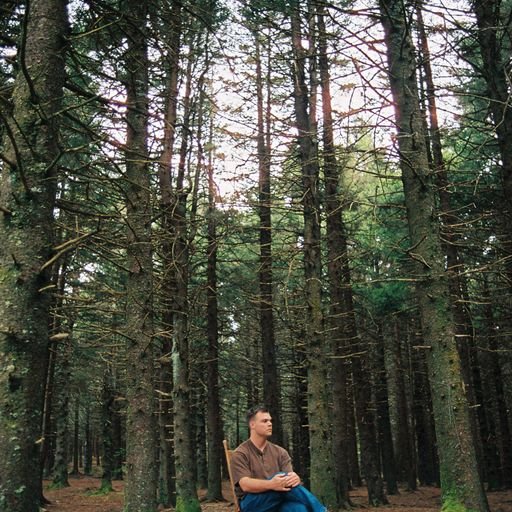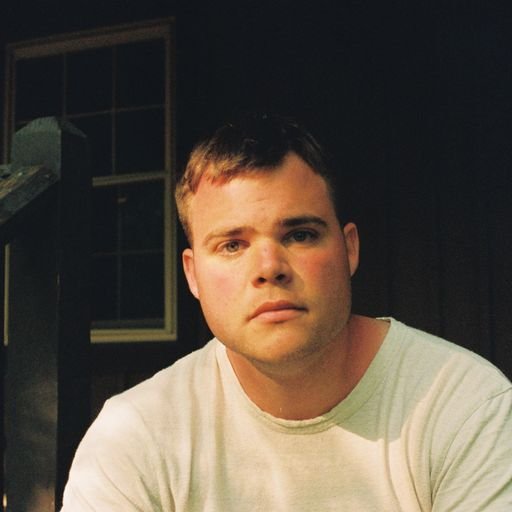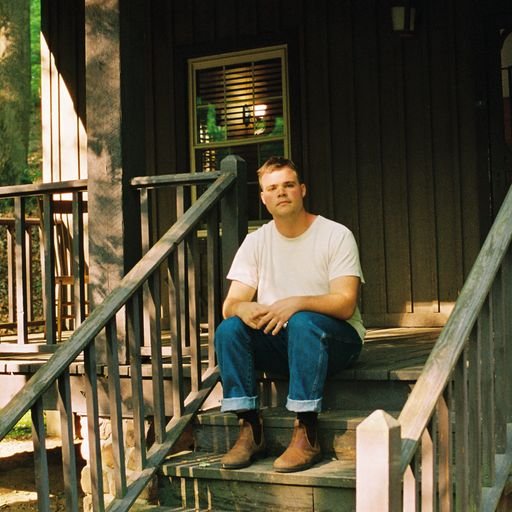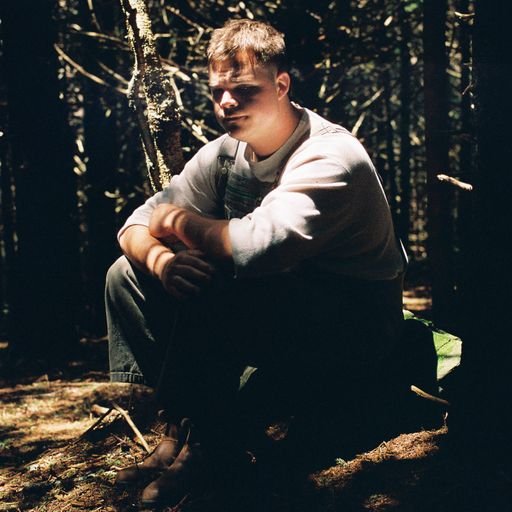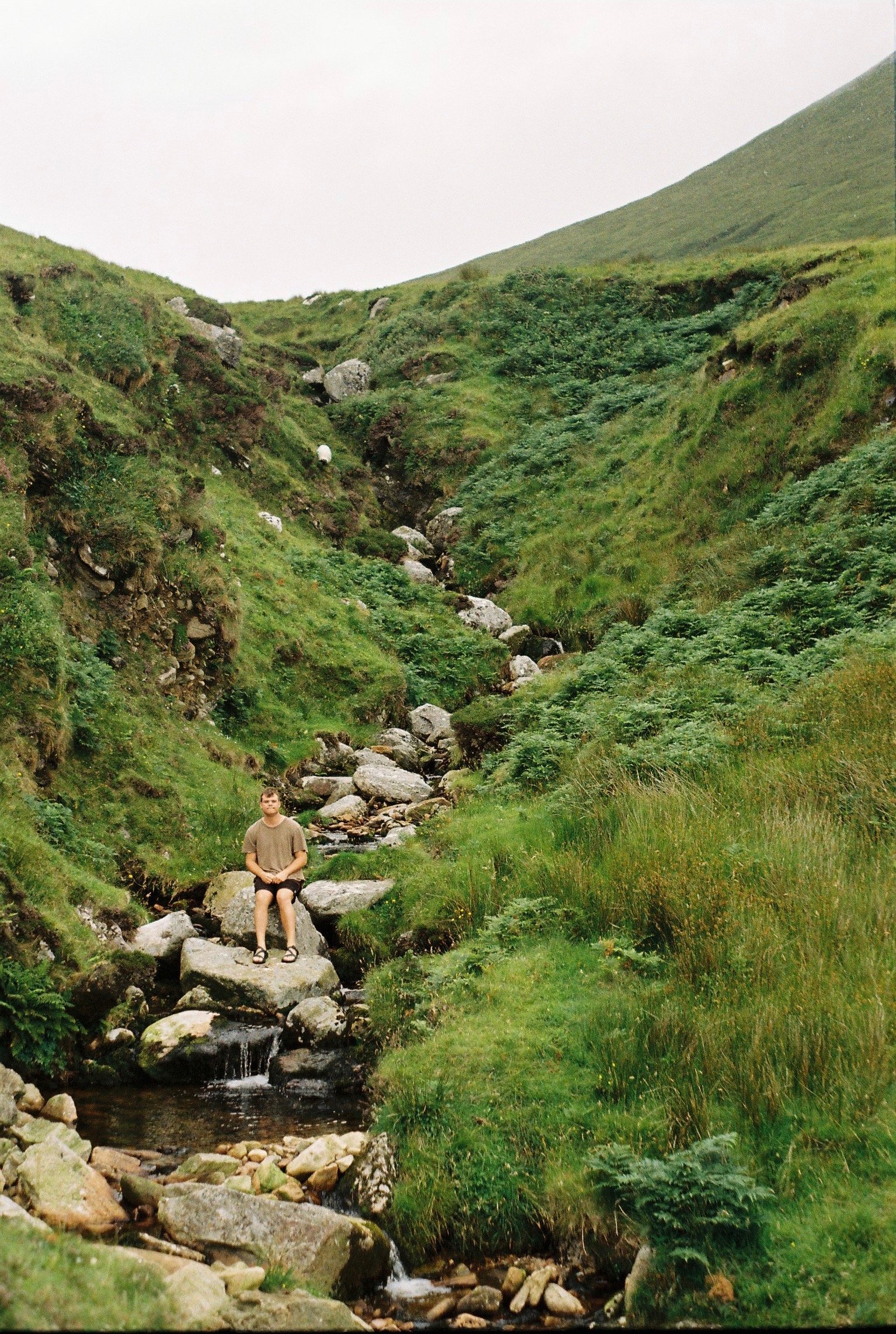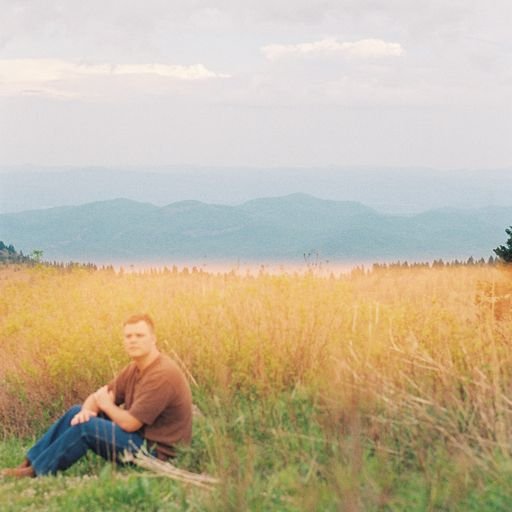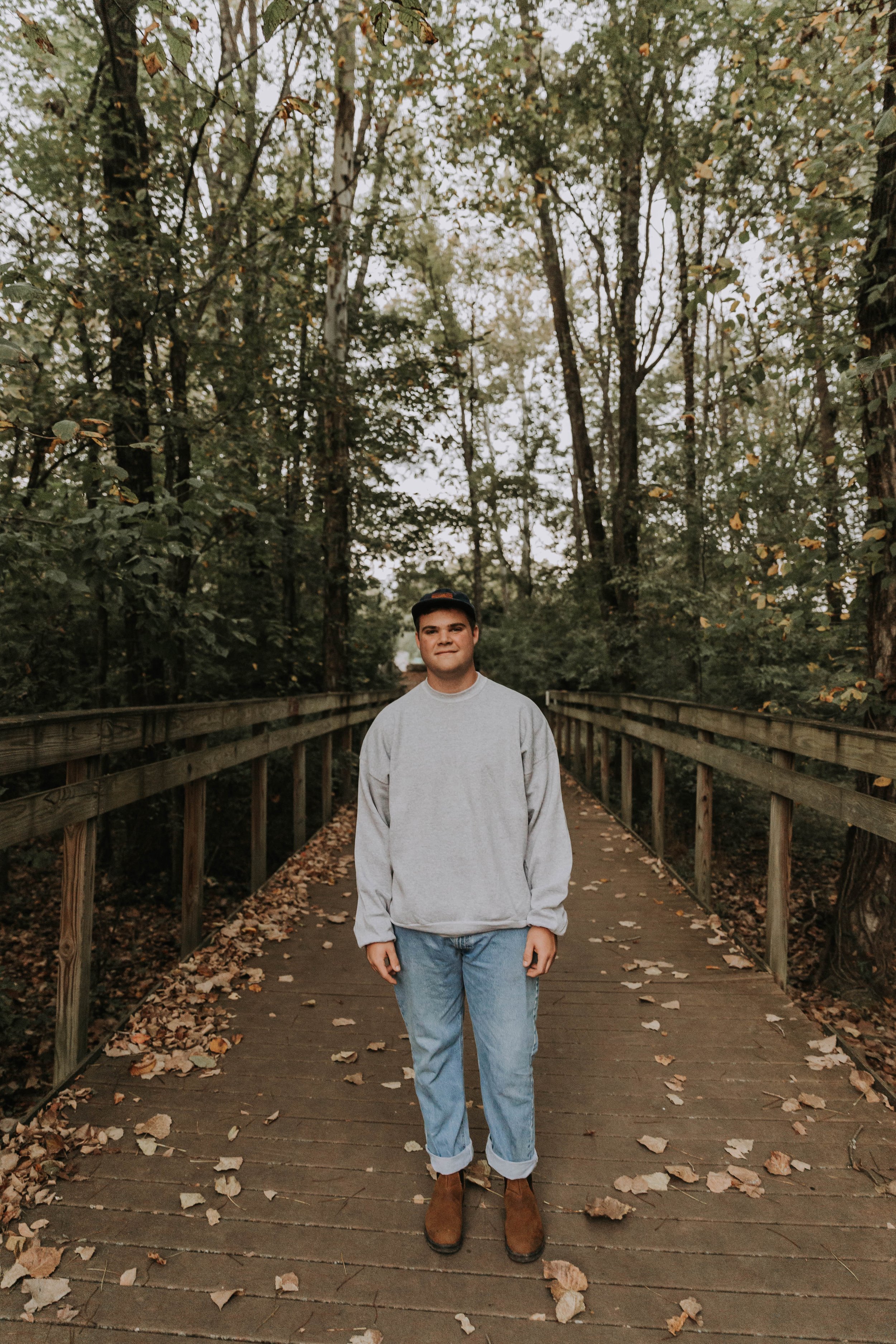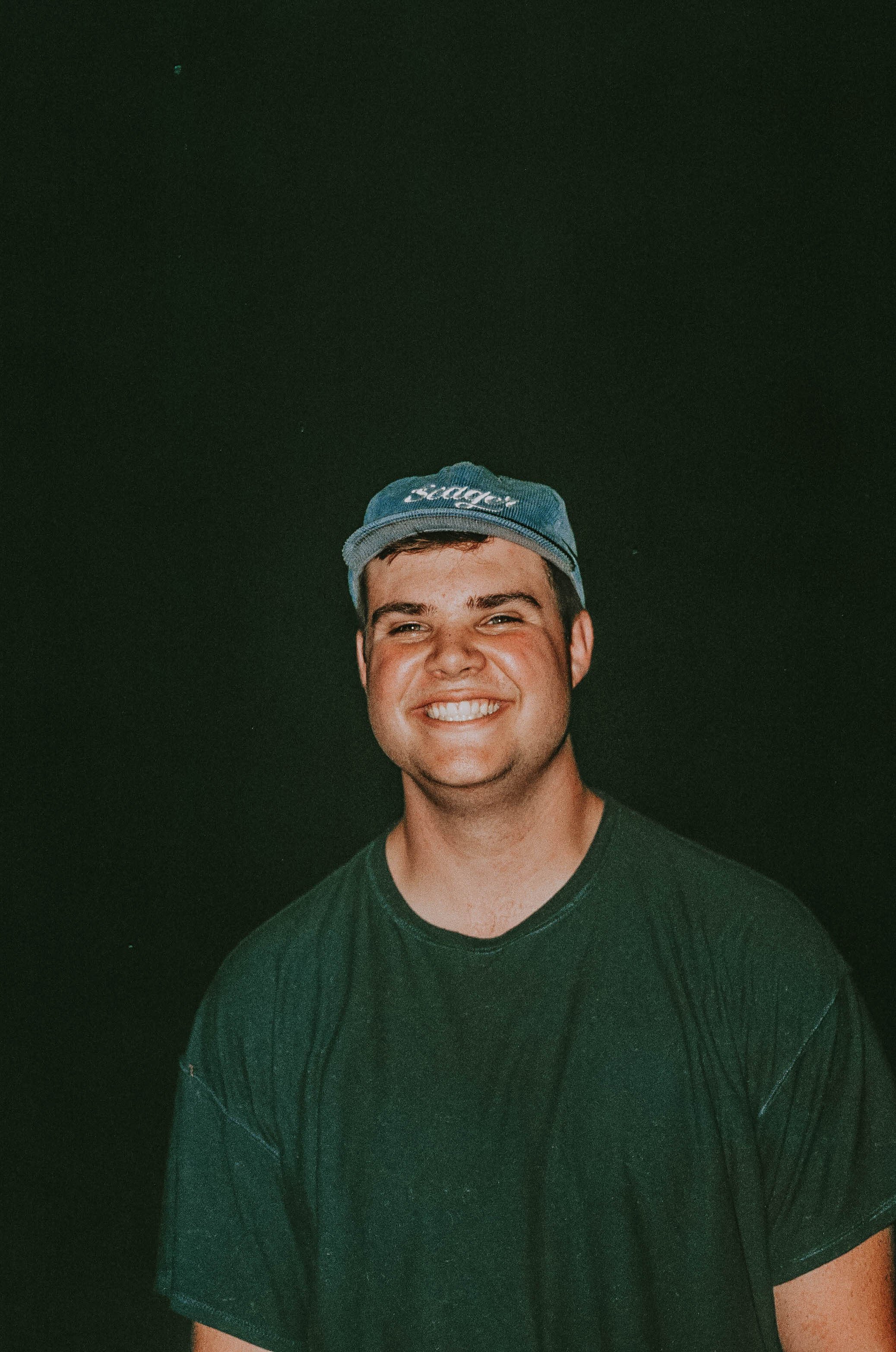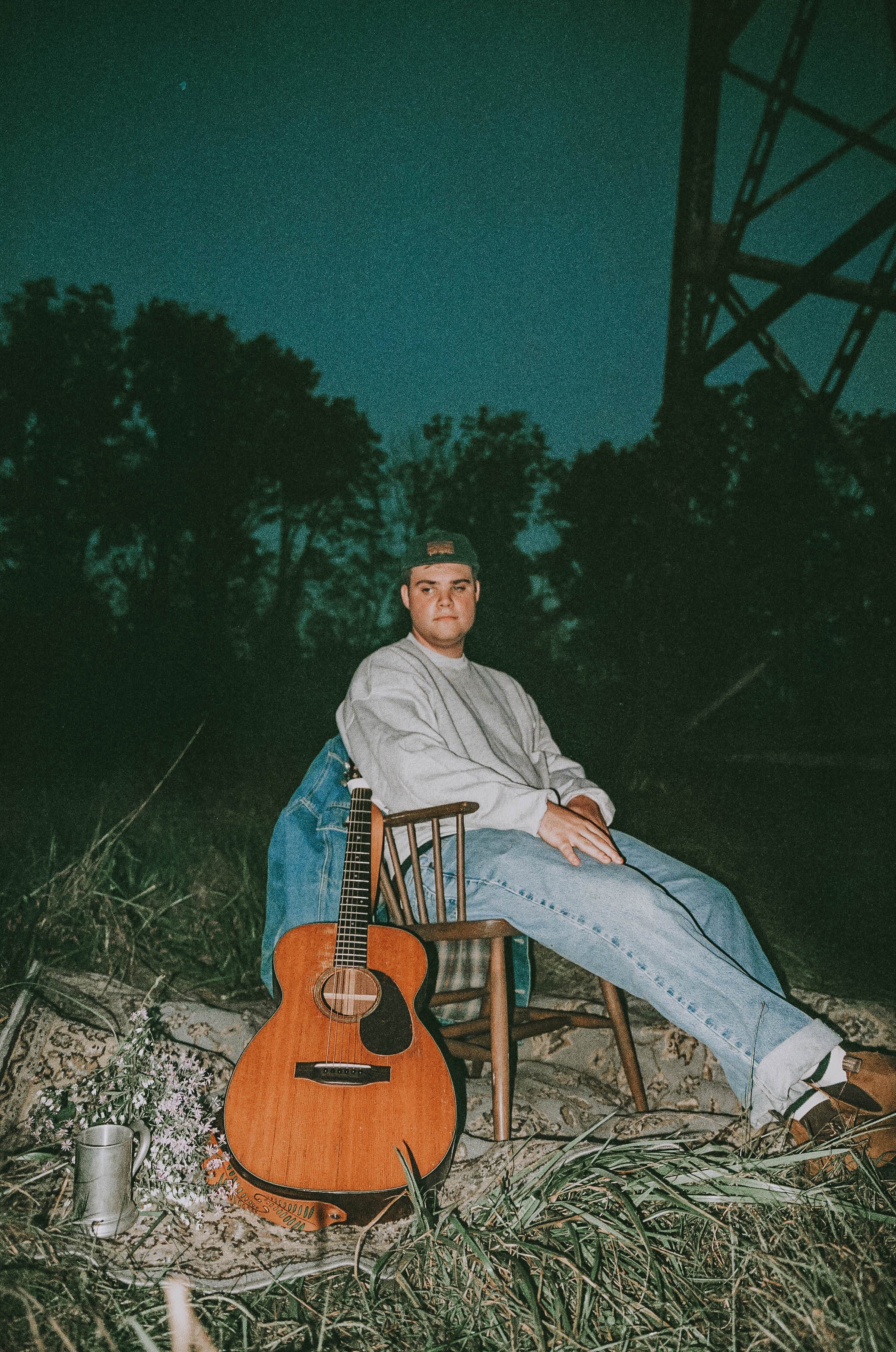
Imagine yourself nearing the end of a trail in the Blue Ridge mountains of North Carolina – variations of green fill your vision, a soft breeze cools the sweat on your brow, rustling leaves and running water join the song of the birds in your ears. This is where the music of Sully Bright takes you.
Bright was born in the small town of Forest City near the mountains of North Carolina. Bonding over rock legends with his father (the Eagles are a favorite), music has been close to Sully Bright’s heart throughout his life. He began writing songs in high school, a pastime turned passion that shaped his life trajectory. Though he treasures his home, Sully Bright moved to Nashville to attend Belmont University in 2020. He is in his final year now at Belmont, where he studies songwriting and works as an intern with producer Lucas Morton. During his second year at Belmont, Bright became friends with John Pierson Smith, with whom he established the folk duo Spruce & Hollow. Spruce & Hollow released their first album earlier this year, and they actively play shows in Nashville and beyond. In the gaps between schoolwork, his partnership with Smith, and the rhythms of everyday life, Bright has been writing, recording and producing throughout his time at Belmont. This has led to the upcoming release of his debut album, “Darling, Wake Up.”
Bright brings all of himself to his debut record; it is an album that reflects this Nashville songwriter’s deep love for his home in North Carolina, as well as his connection to the natural world. Bright shares, “Many of the songs are written about memories and my home in the mountains of North Carolina. The blue ridge lines have become a driving inspiration for my songwriting and how I see the world.” The imagery of leaves and trees, fish and birds, ridge lines and rivers populate the lyrics of Bright’s first record. These images do not operate just as metaphor or simple observation, but rather they are Bright’s vocabulary for expressing the longings of his own heart, both for his home in North Carolina and for the sense of safety and fulfillment that it represents to him.
These two layers of meaning are reflected in the sonic landscape of “Darling, Wake Up.” Rooted in his tender vocals and driven acoustic playing, Bright’s sound stays true to his Appalachian roots. But from this grounding, grows a bed of acoustic and synthetic that takes the listener with Bright beyond the oaks and pines of his home and onto a broader landscape. His music often features sounds layered banjo and piano, which are sometimes straight and at other times played in reverse. The synthesis of acoustic instrumentation and digital creativity give Bright’s work a depth that invites you to hear something new with every listen.
This soundscape came out of the collaboration between Sully Bright and his co-producer Evan Redwine. Bright also partnered with Lucas Morton, who brought to the album some of his production prowess as well his skill on the keyboard. Enlisting old pros like Drew Holcomb and the Neighbor’s Nate Dugger, Bright ensured a tightness to his sound that allows for his creativity to soar. Sully Bright also brought in three artists to sing on Darling, Wake up. Folk artist Ellie Turner is featured on the track Mourning Dove; her haunting voice embodies the vulnerability of the song’s central line, “Will I ever feel loved?”. Bright also invited artist-friends Michelle Raybourn and John Pierson Smith (the other half of Bright’s folk project Spruce & Hollow) to add their distinctive voices to the record.
Though Darling, Wake Up includes the creative contributions of many, it truly reflects who Sully Bright is as a writer and a person. Each song is an honest statement about where he finds himself, what he loves, and what he is afraid of. Bright describes his debut in this way: “Darling, Wake Up is a collection of songs that has come together over the past two years. The songs capture my journey of learning how to find beauty in the midst of uncertainty.” The second track on the album, “Appalachia,” encapsulates this tension through the perspective of Bright driving away from his home in the midst of the storm. Later in the album, this uncertainty shifts to nostalgia and anticipation in “November,” a song both about long-distance love and the loss of a season of life. The sound of “November” is one the richest on the record, featuring a hefty electric line and sharp drum work that transcend Bright’s folk roots.
Near the end of the album, the songs “Dark” and “It’ll All Be Alright,” make up a two-song movement that follows a person (perhaps Bright himself) who sits inside a house, covered in a shadow of anxiety and fear. The first song, “Dark,” describes this state of mind, providing a glimpse into Bright’s own journey with mental health. The song ends with a striking section that switches the perspective of the song to a voice from the outside, one that speaks hope into this house of darkness. This flows directly into “It’ll All Be Alright,” an anthem of encouragement that declares that the darkness is not the end of the story. The imagery of this song pushes past the borders of the house and into the light of day.
These songs reflect a characteristic of the album as a whole – hopeful honesty. Across the record, Sully Bright’s voice rings with an earnest vulnerability that brings life to music that surrounds it. The first single from “Darling, Wake Up” will be available this month, and the album will be released this October.
